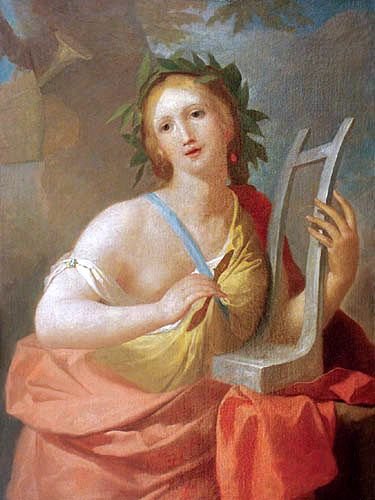Calliope was one of the nine muses in Ancient Greece.
The muse Calliope
Calliope was the muse of lyric writing, of poetry and of epic stories. She was also the muse of eloquence, bestowing kings and princes with her gift.
Homer starts his Odyssey with a plead to the muse Calliope to inspire him so as to finish his poem successfully. This made some people think that Calliope was actually Homer’s mother.
Calliope was the eldest of the muses and she was mother of Orpheus, the lyric poet and bard of Greek Mythology, who fell in love with Eurydice.
In ancient Greece, and most specifically in the classical times, the muses were assigned particular characteristics and artistic abilities.
Calliope was named the muse of epic and lyric poetry, this is why she is usually portrayed holding a stylus and a scroll, or a tablet. In some cases, you might also see her holding a lyre, but the muse of music was Euterpe.

There is also a musical instrument named Calliope, named after this muse. It is a loud instrument that produces its sound with compressed air that passes through large whistles.
Calliope was supposedly God’s Apollo lover, with whom she had two children, while other myths suggest that she was involved with Ares or other Gods.
The name Calliope in Greece today
The name Calliope or Kalliopi is still used in Greece and it is a common name for Greek women.

«e tu i cari parenti e l’idïoma
désti a quel dolce di Calliope labbro
che Amore in Grecia nudo e nudo in Roma
d’un velo candidissimo adornando,
rendea nel grembo a Venere Celeste»
(Ugo Foscolo – I sepolcri – versi 175-180)